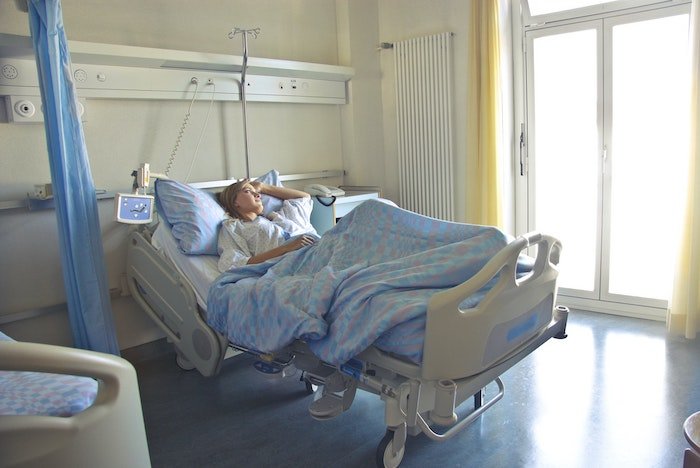A vibrant and bustling city set in the heart of picturesque Somerset, Bath is home to the famous Roman baths and caters to hundreds of thousands of tourists every year.
While Bath may look picture-perfect on the outside, just like in the rest of the UK many of its residents struggle with drug and alcohol problems. If you are reading this, you may be one of them.
Here at OK Rehab, we have helped many people in Bath seek treatment for their substance abuse disorder and watched them go on to lead happy, fulfilled lives free from the trap of addiction.
Start your recovery journey today by calling us on 0800 326 5559
Do I Need To Go To Rehab For Substance Addiction?

Admitting that you have a drug or alcohol addiction can be one of the hardest things you will ever do.
It can be difficult to recognise the signs of addiction without ourselves, and it is often up to concerned family members or friends to spot the symptoms and encourage you to change your ways.
Once you acknowledge that you have a problem, you will be able to seek help and learn how to face uncomfortable situations and memories without turning to substances.
If you can relate to some of the below statements, you may have a drug or alcohol addiction and will benefit from attending rehab in Bath.
- I have attempted to reduce or completely stop using drugs or alcohol and have been unable to.
- I have experienced negative consequences due to my drug or alcohol use but continue to repeat the behaviour.
- I have noticed that I need to increase the dosage and/or the frequency of ingestion in order to experience the same effects.
- I spend the majority of my time planning, obtaining and using drugs or alcohol.
- I use drugs or alcohol to cope with the stress of daily life and avoid experiencing unpleasant emotions or memories.
- I take risks while using drugs or alcohol, such as having unprotected sex or driving under the influence.
- I am no longer interested in hobbies and activities that I previously enjoyed.
- I find myself becoming deceitful and dishonest about my substance use.
- I have withdrawn from most or all of the people in my life.
- I would prefer to use drugs or alcohol than do anything else.
- I have experienced financial and/or legal issues due to my substance use.
If you live in Bath and have recently acknowledged that you have a drug or alcohol addiction, we can help you find a treatment centre that suits your budget and lifestyle.
There are a number of rehabs around the Bath area that specialise in substance abuse as well as outpatient treatment programmes, so get in touch today and let us guide you towards a rehab that works for you.
Get help at rehab in Bath today by calling our team on 0800 326 5559
What Is The CAGE Questionnaire For Addiction?

Alternatively, to get an indication of whether or not you might be addicted to drugs or alcohol, you can use the simple, free, and easily accessible CAGE questionnaire.
The CAGE questionnaire was initially created to determine whether or not a person might be addicted to alcohol. It has now been adapted so that it can also provide an indication of addiction to drugs.
The questionnaire is split into four ‘yes’ or ‘no’ questions. Broadly, the questions ask:
- Have you considered reducing your drug or alcohol intake?
- Have people around you been impacted by your drug or alcohol consumption?
- Has your drug or alcohol consumption caused you to feel guilty?
- Have you used drugs or alcohol at the start of the day to reduce a hangover?
If you answer yes to two or more of these questions on the CAGE questionnaire, that is considered to be an indication that you might be addicted to drugs or alcohol.
The CAGE questionnaire is not a formal diagnosis, but it does provide an indication of whether or not you are addicted to drugs or alcohol, and can be a powerful motivator to start rehab treatment.
To learn more about diagnosing addiction in Bath, call our team on 0800 326 5559
How To Stage An Intervention For Drug And Alcohol Addiction

If you are researching drug and alcohol rehab in Bath on someone else’s behalf, you might have already considered staging an intervention.
Staging an intervention means stepping in to try and change the negative behaviour of someone close to you who is addicted to drugs or alcohol.
It can be a very difficult process and might take the form of a face-to-face conversation or a written letter.
It often centres around the expression of your feelings, explaining how the person’s drug or alcohol addiction is affecting you and others.
It is important that during the intervention you don’t try to make the person feel guilty or shameful, as this can have the opposite effect and can push the person away.
Do try to appreciate and consider how difficult it is for the person you’re staging the intervention for, and do try to focus on the potential for positive changes
How To Use The CRAFT Approach To Intervention

The CRAFT (Community Reinforcement And Family Training) approach to intervention is an evidence-led form of intervention which focuses on highlighting the difference between positive and negative behaviour.
It has two main principles.
Firstly, it is designed to emphasise the outcomes of positive behaviours. This can be done through reinforcement, rewarding the person when they take steps to avoid the consumption of alcohol or drugs.
Secondly, it allows the negative consequences of alcohol or drug use to play out – so long as doing so doesn’t put the person in any danger. This highlights the negative impacts of addiction and drug or alcohol consumptionand its detrimental effects.
The point of the intervention is to show the person the difference between the outcomes of positive and negative behaviours, pushing the person towards the positive behaviour.
This might be enough to convince the person to make the lasting change to their behaviour that is necessary to beat their addiction.
However, even if this outcome isn’t achieved by the CRAFT intervention, it still might be enough to give the person with the addiction the motivation to pursue drug and alcohol rehab in Bath.
For help and guidance conducting an intervention in Bath, call our team on 0800 326 5559
What Are My Treatment Options In Bath?

Rehab centres in Bath generally offer two types of treatment options that focus on either the physical side of addiction recovery or the psychological aspect.
However, the most effective treatment programmes usually offer a combination of the two options.
Detoxification
The process of cleansing the body of drugs and alcohol is known as detoxification and is usually a drawn-out process that involves slowly tapering off the dosage over a period of time. This method can reduce and even eliminate many of the more uncomfortable and dangerous withdrawal symptoms.
It is rarely recommended to abruptly stop using drugs and alcohol, as this can increase the chances of relapse as well as triggering severe reactions such as seizures and suicidal thoughts.
During the process of detoxification, you will receive 24/7 monitoring and support and may be prescribed medication to help you feel more comfortable.
Individual and Group Counselling

While treating the physical symptoms of addiction can be beneficial, the chances of future relapse are drastically lowered when the patient engages in talking therapies with an experienced counsellor.
This can allow both therapist and patient to dig deep into the root of the dependency, challenging negative behaviours and uncovering the hidden experiences and emotions that may lie at the heart of the addiction.
Rehab centres in Bath offer a range of different therapy methods including:
- Cognitive Behavioural Therapy
- Dialectical Behavioural Therapy
- Group Therapy
- Family Therapy
- Individual Therapy
- Holistic Therapies such as art, music, equine, reflexology and acupuncture
Before you undergo detoxification or begin counselling, you will undergo an assessment under the guidance of a trained medical professional.
They will ask you a number of questions relating to your lifestyle and substance use, run physical tests to check your general health and refer to your medical history in order to professionally diagnose you with a substance abuse disorder.
To learn more about the various treatments available in Bath, call our team today on 0800 326 5559
What Is The Cost Of Drug And Alcohol Rehab In Bath?

The cost of rehab for drug or alcohol addiction varies widely, depending on the type of service that you want to use.
While the prices will depend on a number of factors, such as location and the duration of your stay, drug and alcohol rehab in Bath will cost, on average, around £3,500 a week.
In many instances, it will be recommended that your stay lasts for 28 days, bringing this total up to an average of £14,000.
Drug and alcohol rehab is costly, however there will sometimes be cheaper options.
The downside to cheaper rehab is often that there will be fewer staff and less modern facilities.
Successful drug and alcohol rehab can completely change your life, and it’s worth keeping this in mind while assessing whether or not it is something that you can afford.
For a more accurate estimation of how much rehab in Bath will cost you, call our team on 0800 326 5559
Can Drug And Alcohol Rehab In Bath Be Covered By Healthcare Insurance?

Healthcare insurance is relatively uncommon in the UK.
Most people use the NHS for the vast majority of their healthcare needs, but there can be benefits from healthcare insurance.
Sometimes healthcare insurance is provided to a person by their employer, and sometimes it’s taken out privately.
In either regard, you might consider whether or not it can be used to cover the cost of rehab in Bath.
The answer is complicated, and there are pros and cons to using insurance to cover rehab treatment for drug or alcohol addiction.
If the insurance is provided by an employer, you would have to speak with your employer about using the insurance to cover rehab for drug and alcohol addiction.
This can sometimes be a challenging conversation to have, and you might worry about the judgement or stigma that could be labelled on you by your employer or co-workers.
Therefore, while the insurance might cover rehab for drug and alcohol addiction, accessing it isn’t always the best option.
If your healthcare insurance is independent of your employer, you can also consider using it to cover your rehab treatment for addiction if it is included in your insurance plan.
However, you will be required to inform the insurance company of your addiction, which could lead to high insurance costs in the future.
For more guidance on using health insurance to cover the cost of rehab in Bath, call our team on 0800 326 5559
Can Drug And Alcohol Rehab In Bath Be Covered By The NHS?

Rehab treatment for drug and alcohol addiction can be accessed through the NHS, but receiving the treatment is a long, complicated, and challenging process.
Funding for rehab treatment for drug and alcohol addiction is tightly ring-fenced and controlled by local authorities like the council.
You will often be required to make an application to access the funding to receive the rehab treatment, with the support of a statutory body.
Once the application is made and filed, it can take months to be processed and considered, leaving time for your addiction to get worse.
When the application is eventually processed, there is a substantial chance that the funding will be denied, putting you back to square one.
What Are The Differences Between NHS Rehab And Private Rehab?

In contrast, private rehab clinics can be accessed almost immediately, allowing you to skip the arduous application process and long waiting lists.
A private rehab clinic will provide you with more one-to-one support, often with access to a personal therapist.
This means that treatment will be more tailored to your specific needs, taking your background and history into account.
You should take the time to research which option is best for your circumstances, and you can speak to a professional at a rehab clinic over the phone or online to receive advice.
For help choosing between public and private rehab in Bath, call us today on 0800 326 5559
What Is The Difference Between Inpatient And Outpatient Treatment?

Inpatient treatment is when you stay at the rehab clinic or affiliated accommodation for the duration of your rehab treatment. Essentially, it means that you won’t go back to your normal residence and will have access to professional support, 24/7 for your time in rehab.
Outpatient treatment is when you don’t stay in a rehab clinic, and instead just attend the clinic for therapy sessions, detox sessions, or use detox kits at home. It also includes online therapies and courses.
Inpatient stays are recommended for people who have previously tried to stop their addiction and haven’t succeeded.
Residential stays can remove you from toxic environments, often shared by people who use drugs or alcohol and allow you to focus solely on your recovery and the end of your addiction.
They are also recommended if you have mental health issues which could prevent the success of at-home treatments, or if you have a history of violence or dangerous behaviour after drug or alcohol consumption.
Outpatient treatments are cheaper, and you might find it easier to integrate outpatient treatments, like online therapy, into your life and routine.
Ultimately, inpatient treatments are often more successful at breaking addictions, but you should speak to a professional and seek advice if you’re considering accessing either of the treatments to learn what is best for you.
For a little guidance choosing between public and private rehab in Bath, call our team on 0800 326 5559
What Therapies Are Used In Drug And Alcohol Rehab?

Cognitive Behavioural Therapy, commonly known as CBT, is a psychological therapy that is designed to teach you how to notice, examine, and challenge your behaviours.
A common technique in CBT is a ‘thought diary’. In this diary, you will write down the emotions you are feeling and the events and thoughts that led to them
You will also record how your emotions can cause a change of behaviour.
By understanding your behaviours in a more complete way, you will be able to have greater control over them and change the way in which you make decisions.
Other popular therapies include:
- Family therapy – Family therapy acknowledges that the impact of your drug and alcohol addiction is unlikely to be limited to you. If your addiction has also harmed your family the therapy can be useful as a way of working through it together and can help you to rebuild damaged relationships.
- Dialectical Behavioural Therapy – DBT is an alternative form of therapy to CBT. The aim of this therapy is to teach you coping strategies for impulsive behaviours and overpowering emotional responses.
- Holistic therapy – Holistic therapies can introduce you to music, art, animal handling and other emotional outlets. It can help you to build a new sense of purpose, and to treat your addiction in a creative and fulfilling way.
To learn more about the various treatments available in Bath, call us on 0800 326 5559
What Are The Benefits Of Going To Rehab?

While no two rehab centres in Bath are the same, it may share the same key concepts. This intensive and structured style of treatment programme provides many benefits for individuals struggling with drug and alcohol addictions and can help to facilitate long-term recovery.
Common benefits of going to rehab include:
- The treatment programme is undertaken in a safe and secure environment, with no triggers or opportunities to lapse into substance use.
- There is 24/7 monitoring throughout the detoxification process with immediate medical assistance if required.
- Patients are provided with a personalised treatment and aftercare plan that works with their lifestyle and preferences.
- A stable routine and full schedule keeps patients busy, with little time to be distracted by cravings.
- Offers a wide range of therapeutic treatments.
How Long Does Rehab Last?

Depending on the severity and type of your addiction, treatment within a rehab centre in Bath will usually last between 7 and 28 days with most programmes ranging between two and four weeks.
Rehab is not prison and you will usually be permitted to leave at any time of your choosing.
However, it is recommended that you stay in rehab for the duration of the process, as this will provide the minimum benefits and ensure that you are physically and mentally prepared to reintegrate back into life after rehab.
Alcohol Rehab In Bath

Alcohol is a challenging addiction to break as it is so prevalent in the UK’s society. It can be found in shops, homes, restaurants, pubs, sports stadiums, and plenty of other social spaces.
Alcohol is physically addictive, which means that withdrawal symptoms can be extreme and –if not managed correctly – even fatal.
Alcohol withdrawal symptoms include nausea, vomiting, and potentially seizures. If the seizures aren’t addressed, they can progress to delirium tremens, which can lead to death.
For these reasons, it is likely that an inpatient stay will be necessary as you try to break your alcohol addiction.
You will undergo a ten-day Librium-based detox, which will greatly reduce the risk of seizures, before receiving a recommended further two weeks of therapy treatment.
The therapy will aim to address the underlying issues relating to the alcohol addiction, and will provide you with the time and space to reflect on your addiction and what behavioural changes can be made going forward so that you can remain sober.
To learn more about how a rehab in Bath can help you beat alcohol addiction, call our support team on 0800 326 5559
Heroin Rehab In Bath

Heroin is an addictive, illicit drug. Overdosing on the drug can be fatal, so it is vital that rehab treatment is sought to end its use.
Heroin is another physically addictive drug, meaning that a detox will be a necessary part of treatment.
Through the detox, you will be supported to manage your withdrawal symptoms.
Heroin withdrawal symptoms can include nausea, shaking, sweating, and can also have psychological impacts like the onset of depression. These symptoms generally peak after 3 days, but it will take longer before they subside completely.
You will then be offered therapy as a key part of the rehab treatment, so that you can ensure you are in the best place to maintain your sobriety once your rehab treatment ends. This therapy will enable you to make the best decisions about your future, having thought about the causes of your addiction in the past.
To learn more about how a rehab in Bath can help you beat heroin addiction, call our support team on 0800 326 5559
Cocaine Rehab In Bath

Cocaine is a highly addictive drug, which can elevate mood and increase mental alertness when used. The drug is so addictive that you can become addicted after just the first instance of use.
As the drug is psychologically addictive, and not physically addictive, there is no need for a detox during treatment.
Instead, during rehab you will go straight to the therapy stage, where you will address the causes of the drug use and learn how to make behavioural changes to avoid it in the future.
Nevertheless, ending the use of the drug can still trigger withdrawal symptoms.
These can include bouts of depression and anxiety, noticeable tiredness, and general feelings of discomfort. The professionals at the clinic will be able to guide you through the withdrawal symptoms as part of the rehab treatment process.
To learn more about how a rehab in Bath can help you beat cocaine addiction, call our support team on 0800 326 5559
Cannabis Rehab In Bath

Cannabis is an illicit substance in the UK. However, its use is widespread, especially among the younger populations. It is estimated that up to 10% of regular cannabis users will develop an addiction to the drug.
Cannabis addiction can have hugely negative impacts on your life, inhibiting your social life, academic performance and career.
It can seriously reduce motivation, and is highly associated with drop-out rates and a reduction in IQ.
Use of the drug can also trigger mental illnesses like schizophrenia, which can have life-changing consequences.
Like cocaine, cannabis is psychologically addictive so a detox won’t be necessary. You may still experience withdrawal symptoms, such as depression and restlessness, and will receive psychological therapy to help you to gain control and stop the use of the drug.
To learn more about how a rehab in Bath can help you beat cannabis addiction, call our support team on 0800 326 5559
Why Is Dual Diagnosis Important For Drug And Alcohol Addiction?

Drug and alcohol rehab in Bath can include the use of dual diagnosis.
Dual diagnosis is a vital tool when dealing with a presentation of drug or alcohol addiction. It will assess you for any mental illness alongside your addiction, such as depression, anxiety, bipolar disorder or schizophrenia.
Mental illnesses can go undiagnosed, and some people aren’t even aware that they have them.
However, they are also highly linked with drug use, and a complete rehab treatment will need to focus on the addiction and underlying mental illness simultaneously.
This is because a co-diagnosis of mental illness can significantly change the way in which therapy seeks to address your addiction in the long term.
By simply receiving the correct medication or therapy for a mental illness alongside addiction, you could find that your mood and outlook change significantly, already reducing the chance of serious relapse.
Dual diagnosis treatment acknowledges the fact that addiction cannot be effectively treated if you have an undiagnosed, underlying mental illness that is ignored in the treatment and relapse prevention plan.
For more information about how rehab in Bath will help you address mental health conditions too, call our support team on 0800 326 5559
What Is A Relapse Prevention Plan?

During your drug and alcohol treatment in Bath, you will be supported with the creation of a comprehensive and detailed relapse prevention plan.
The plan will be tailored specifically to your needs, based on the circumstances of your addiction and your personal history.
The plan will be designed to avoid relapse by suggesting behavioural changes and creating strategies for avoiding triggers and situations that have historically prompted drug or alcohol usage.
Triggers for drug or alcohol consumption can be as general as ‘stressful situations’, or more specific like a certain memory.
The relapse prevention plan will help you to map out ways in which you can avoid these triggers and coping mechanisms for when you can’t avoid them. These coping mechanisms can be as simple as mindful breathing practices and can help you get through hard situations without relying on drug or alcohol use.
The plan will also help you to bounce back in the case that a relapse does occur.
Relapses are a normal part of the journey out of rehab treatment, and the plan will help you come up with strategies to pick yourself back up and continue down the path to sobriety.
These strategies will often focus on disclosing your relapse and using your family and friends for support to avoid feelings of guilt and shame.
The relapse prevention plan will support you to move past your drug and alcohol addiction, and move towards a more fulfilling and healthier lifestyle.
To explore the relapse prevention strategies available at Bath, call us on 0800 326 5559
What Happens After Rehab In Bath?

The thought of leaving the treatment centre and settling back into life after rehab can be a daunting prospect.
Without 24/7 medical supervision and on-hand counsellors keeping you on track, you may suddenly be faced with a number of potentially triggering situations and the ability to access drugs and alcohol with little difficulty.
Thankfully, rehabilitation centres are prepared for this outcome and will provide you with a personalised aftercare plan designed to keep you on the road to recovery.
As the risk of relapse is highest when you first leave the treatment centre, there are a number of options available to you that can help the transition feel smoother and safer.
1. Local Support Groups
Attending support groups such as Alcoholics Anonymous (AA) or Narcotics Anonymous (NA) can help you feel more integrated into the community and reduce feelings of loneliness and isolation, two key emotions that can lead to relapse.
2. Ongoing Counselling
The counselling that you receive during rehab is a great starting point and can provide you with a deeper insight into your behaviours and mindset. However, ongoing work is needed to continue to support you throughout your recovery journey and regular sessions with a counsellor can be extremely beneficial.
3. Sponsors
A sponsor is an individual who is further along on their recovery journey than you are. They may have shared similar experiences and will be able to provide helpful advice along with tried-and-tested strategies for avoiding relapses, and will be someone you can rely on during difficult times.
4. 12-Step Programmes
Similar to local support groups, 12-Step Programme attendees meet regularly to discuss their emotions and experiences with sober living. Group members can inspire and motivate each other to continue on the path to recovery, and provide a strong support network during a time when you may need it most.
5. Half-Houses
In some cases, going straight back to your previous life may be detrimental to your recovery. A sober half-house is a place where you and other people in recovery can live once you have left the treatment centre. They provide more freedom than rehab, but a number of strict rules still apply, making the transition to daily life feel less intimidating.
Getting Help In Bath Today

At OK Rehab we take your addiction and goals for recovery very seriously and will always treat you with respect and humility. We make sure you are put into contact with excellent treatment providers in Bath who understand the importance of aftercare and relapse prevention.
When you call our team, we will always listen to what you say and hold all information in confidence.
Some members of our team have also had to make use of addiction treatment in the past, so they understand what you are going through and how hard it is.
To begin your recovery, call our team today on 0800 326 5559





